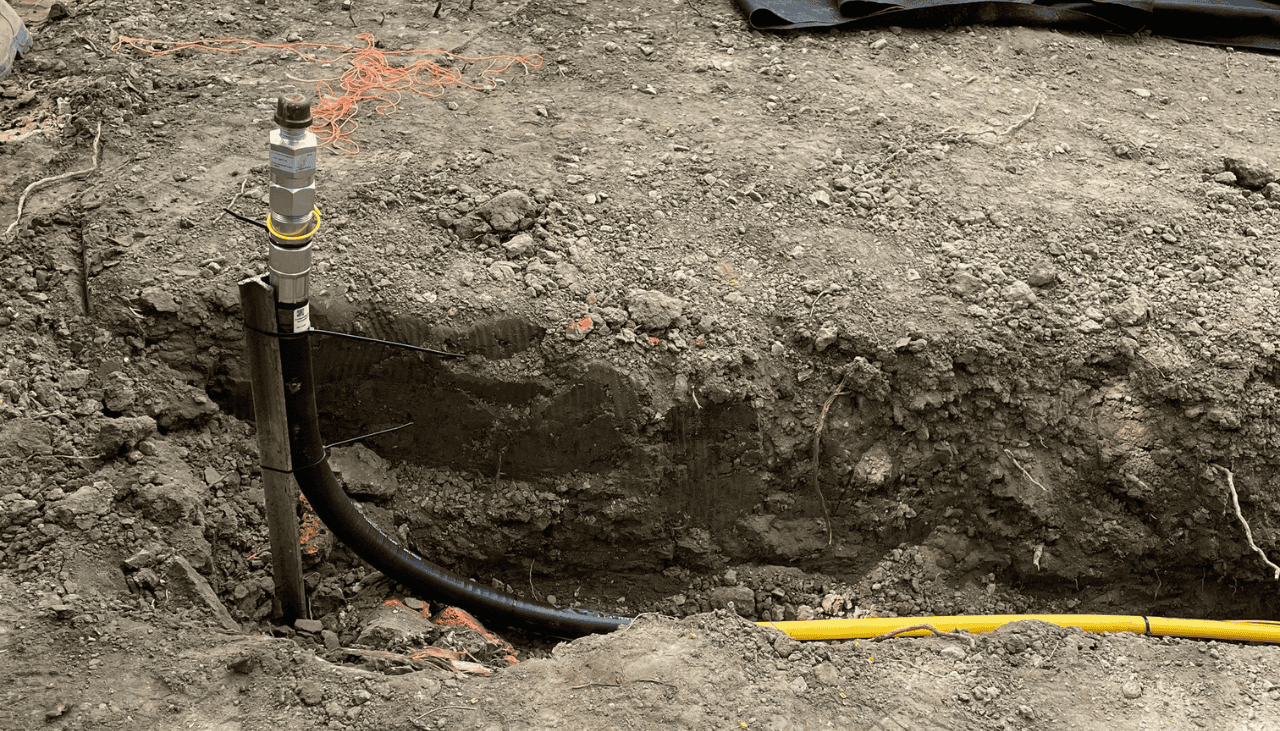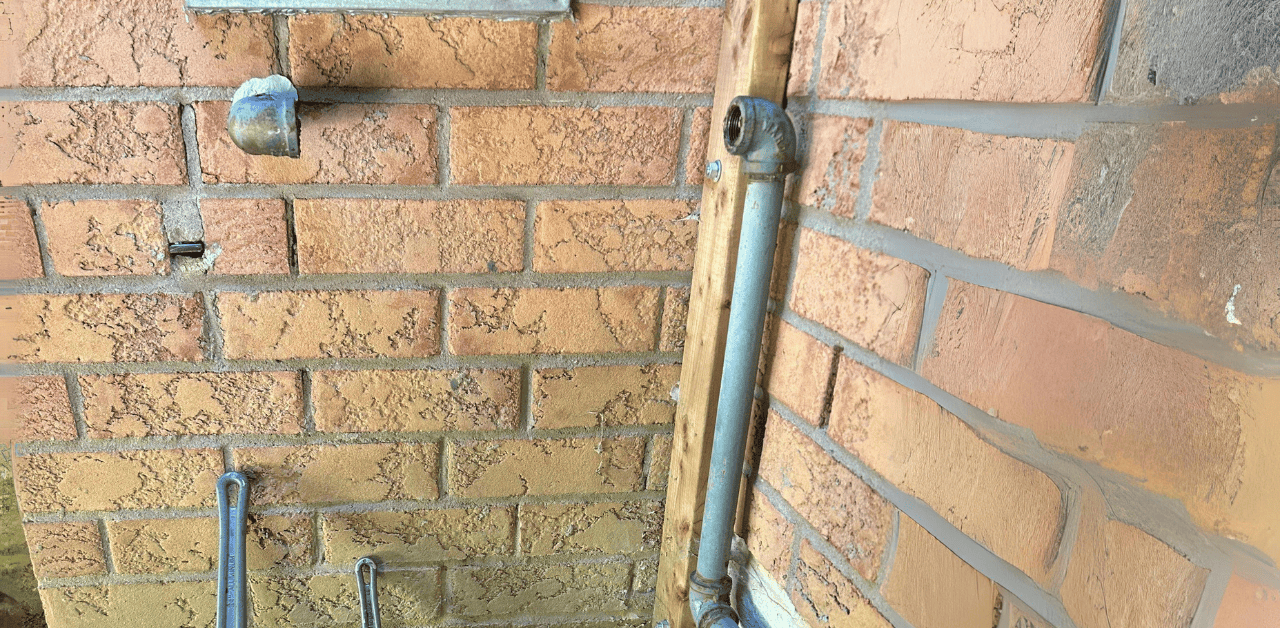To find and stop loose gas line connections, you need to check and take care of them often. Put gas detectors in important spots and do soap bubble tests on pipes you can see. Look for damage like rust, dents, or cracks. It’s also crucial to be aware of any unusual sounds that may indicate a problem. For instance, a distinct gas line hissing sound causes concern and should be investigated immediately. If you notice this sound, evacuate the area and contact a professional to assess and repair any leaks.
Loose connections can happen because of changing temperatures, wrong setup, or shaking from machines nearby. Make sure pipes are put in right with proper threading and enough pipe sealant.
If you smell gas a lot or your gas bill goes up for no reason, call a licensed expert right away. By knowing what causes problems and taking steps to prevent them, you can really lower the risk of dangerous gas leaks in your home.
Key Takeaways
- Check gas lines often for damage you can see, rust, or wear. Use soapy water to find leaks.
- Make sure gas lines are put in right. Use the proper threads, pipe glue, and tighten fittings well.
- Put gas detectors in important spots. Learn to know the “rotten egg” smell of natural gas.
- Follow Canadian rules, get the right permits, and keep records when you put in or change gas lines.
- Call experts with licences to put in, replace, or fix gas lines and things that use gas.
Understanding Gas Line Connections
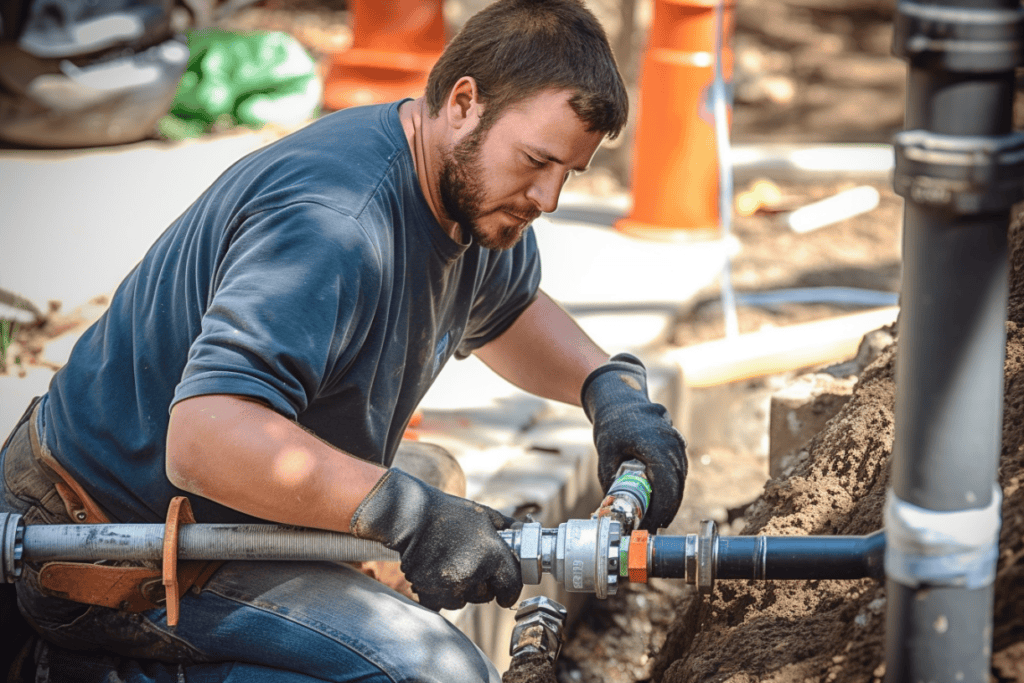
Gas line connections are important parts of a gas system where pipes, fittings, and appliances meet. These connections need to be put in properly and checked often to keep everyone safe and make sure they work well. Regular inspections and maintenance by a qualified gas line fitter are essential to identify any potential leaks or weaknesses in the system. Additionally, a gas line fitter can ensure that all connections comply with safety regulations and are functioning optimally, reducing the risk of accidents. It is crucial for both residential and commercial properties to prioritize these measures for peace of mind and safety.
They include things like pipe fittings, valves, regulators, and flexible connectors. Each part helps keep the system working right and stops gas from leaking, which can be very dangerous.
You’ll see different kinds of connections, like threaded joints and pipe unions. It’s really important to put pipe threads together the right way to make sure they’re sealed tight.
When you’re putting in or checking gas lines, you need to look carefully for signs that they’re worn out, rusty, or loose. Regular upkeep should include doing a soap bubble test to find any leaks.
Common Causes of Loose Connections
Gas line connections can become loose over time for several reasons. Changes in temperature and pressure can make pipes expand and shrink, which might weaken the joints. If pipes aren’t threaded properly or if not enough pipe sealant is used during installation, connections may slowly come loose. Not tightening fittings enough can also lead to problems later on.
Shaking from nearby machines or earthquakes can gradually loosen connections, making them less safe. Rust or wear on gaskets and seals might mean they need replacing to keep things tight.
Regular checks by licensed plumbers or gas company workers can help find these issues before they become dangerous. It’s important to take care of gas lines by tightening fittings from time to time and replacing gaskets when needed. This helps keep gas connections safe and reliable for a long time.
Detecting Gas Leaks at Home
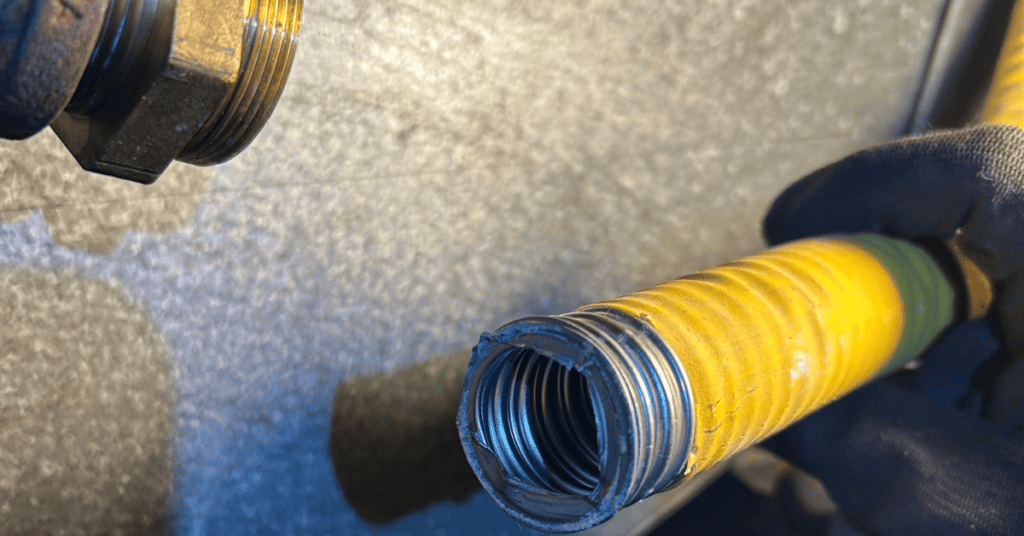
To find gas leaks at home, you need to use different ways to be really safe.
First, put gas detectors in important spots in your house, like near gas stoves and in basements. You can also do the soap bubble test on gas pipes you can see.
Always be on the lookout for a smell like rotten eggs, which is what natural gas leaks often smell like.
It’s important to check for leaks often to keep your family safe.
Using gas detectors
Gas detectors are handy tools that help find dangerous gas leaks in your home. They work alongside your nose to keep you safe. You can get different kinds, like ones you hold in your hand, plug into the wall, or carry around. Some fancy ones can even spot many types of gases at once.
Special detectors that use sound waves are great for finding exactly where a leak is coming from. When you’re picking a gas detector, think about how well it works, how fast it finds gas, and if it’s easy to keep working properly. It’s important to check and adjust your detector regularly to make sure it’s still accurate.
While the ones professionals use are super precise, the ones you can buy at the store still work well for most homes. By using gas detectors as part of your home safety plan, you’ll be better at finding and dealing with gas leaks quickly.
Performing the soap bubble test
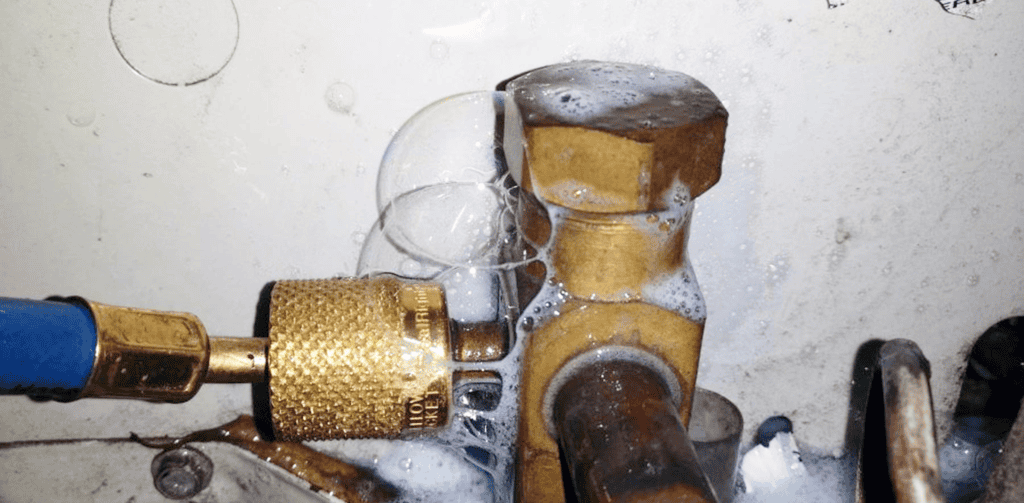
To check for gas leaks at home, you can do a simple soap bubble test. This method is easy and doesn’t need fancy equipment.
- A spray bottle with soapy water
- Safety gear (gloves and goggles)
- Knowledge of where to turn off the gas
- Access to gas pipes and connections
- Good lighting to see clearly
Spray the soapy mix on areas where you think there might be a leak, like where pipes join or on pressure controls. If you see bubbles forming, it means there’s a leak. This test helps with regular checks and safety training. Don’t forget to look at pipe sizes and sealing materials too.
While the soap bubble test is good for finding small leaks, it’s not as thorough as what a professional can do. Always put safety first and ask experts to do a full check of your gas system.
Recognizing gas odors
Natural gas and propane have special smells added to them, often described as a “rotten egg” smell. This helps people notice if there’s a gas leak in their home. The smell, usually from a chemical called mercaptan, can be noticed even when there’s only a tiny bit of gas in the air. But it’s not enough to just rely on smell. It’s important to install gas alarms and carbon monoxide detectors that have proper safety approvals. Make a plan for what to do in an emergency and follow local rules to prevent gas leaks. Additionally, if you ever smell gas in your house safety must be your top priority. Evacuate all occupants immediately and avoid using any electrical devices that could ignite the gas. Contact your gas company or emergency services as soon as you are in a safe location to report the leak.
| Safety Measure | Purpose | How Often |
|---|---|---|
| Gas Alarms | Find leaks | All the time |
| CO Detectors | Check CO levels | All the time |
| Inspections | Look at connections | Once a year |
| Maintenance | Keep system working well | As planned |
| Odour Checks | Spot leaks | Every day |
Make sure to do regular maintenance and inspections to keep your gas system safe. If you smell gas, leave right away and call emergency services. Don’t just trust your nose; use different ways to check for gas leaks to stay extra safe.
Safety Precautions for DIY Inspections
When you want to check your gas lines on your own, you need to be very careful and use the right safety gear. Before you start, learn about the rules for inspections and know how to turn off the gas and leave quickly if needed. It’s a good idea to have fire extinguishers close by and to ask for advice from home inspectors, heating experts, or fire safety pros.
Important safety steps include:
- Use gas detectors that are approved, like the UEI Test Instruments CD100A or Klein Tools ET120
- Make sure there’s lots of fresh air where you’re working
- Wear safety glasses and gloves
- Never use flames to look for leaks
- Have a plan ready in case something goes wrong
Signs You Need Professional Help
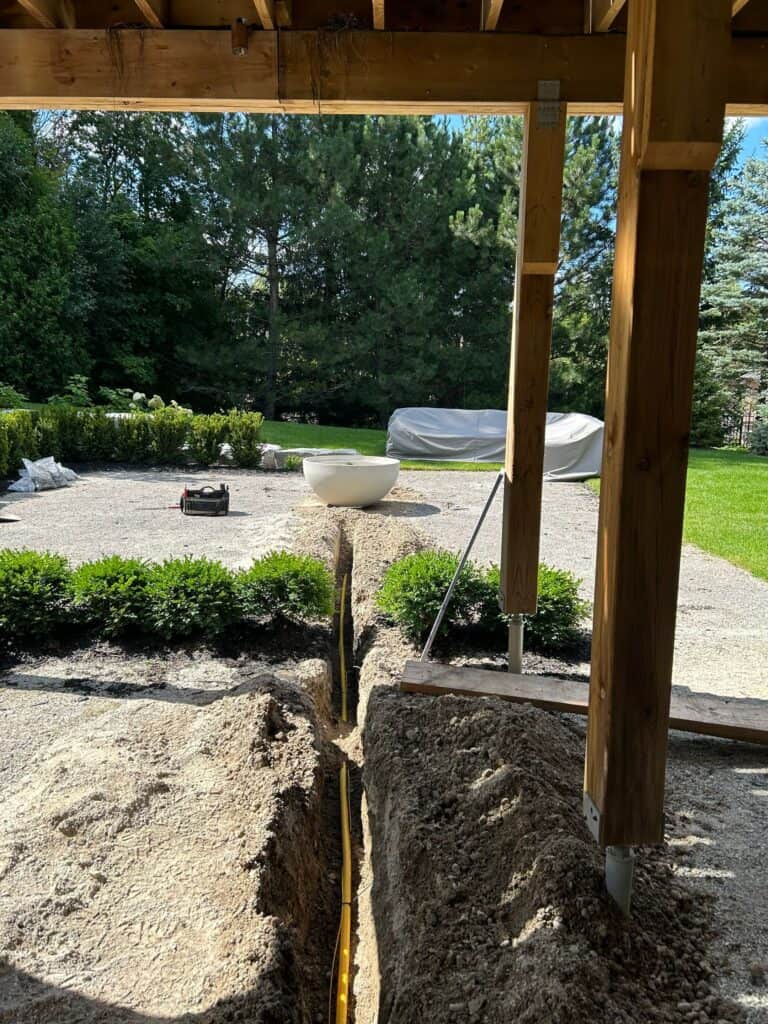
If you smell gas a lot or your gas bills go up for no reason, it’s time to get help from an expert. These could mean you have gas leaks or problems with your system that need checking.
Also, if you see any damage to your gas pipes, like rust, dents, or cracks, call a certified technician right away to look at it and fix it.
It’s important to stay safe when it comes to gas in your home.
Persistent gas odors
A gas smell that won’t go away in your home, even after you’ve opened windows and doors, could mean there’s a dangerous leak. You need to call experts right away.
Gas companies add a strong smell to natural gas so you can tell if it’s leaking. If you’ve checked common things like pilot lights or unlit stoves and the smell is still there, it’s time to get help.
The experts will use special tools to:
- Test the pressure in your gas lines
- Look at vents and safety valves
- Make sure gas pipes are sloped and supported properly
- See if any parts need to be replaced
- Use smart meters to find exactly where the leak is
Never try to find a gas leak yourself with anything that could spark a fire. The professionals will safely clear out the gas if they need to.
Unexplained increases in gas bills
Unexplained jumps in your gas bills can point to a hidden leak or connection problem that needs a professional to check it out.
When methane leaks from loose connections in bendy gas lines or stiff metal pipes, it can waste a lot of gas, often measured in cubic feet per hour. This waste not only costs you money but also creates safety risks and affects the air quality in your home.
Professional technicians can measure gas pressure, usually in inches of water column, to find possible issues. They’ll also make sure everything follows the rules and fix things if needed, like relining pipes or tightening connections.
If you ignore these signs, it could be seen as careless and might lead to bigger problems.
If you see a sudden rise in your gas use without changing how you use gas, it’s really important to call a licensed professional right away for a thorough check-up.
Visible damage to gas lines
When checking your gas lines, any visible damage needs a professional to look at it right away. Don’t ignore it.
Different types of gas lines need different checks:
- Black iron pipe: Look for rust or corrosion
- Copper tubing: Check for bends, dents, or colour changes
- Corrugated stainless steel tubing: Look for holes or stretching
- Flexible metal tubing: Check for fraying or wear
- All types: Make sure fittings aren’t loose or leaking
Each material is different in how it resists rust and how strong it is. This affects how long it lasts and how safe it is.
Damaged lines can cause drops in pressure, which can create places where fires could start. Trying to fix it yourself isn’t only unsafe but also puts you at risk.
A professional safety check is important to find and fix problems quickly. Remember, your gas system’s safety is very important. A trained technician should always check visible damage to keep your home safe.
Preventive Measures for Gas Line Safety
To keep gas lines safe, you need to follow important steps when installing, maintaining, and checking them. First, make sure all gas line installations follow national rules and get the right permits. Keep records to show you’ve followed the rules. Additionally, it’s vital to regularly inspect the gas lines for any signs of wear or leaks to prevent potential hazards. Training personnel on essential steps for gas line installation and safety protocols is crucial to ensure compliance and safety standards are met. Lastly, always have a qualified professional perform any repairs or modifications to maintain the integrity of the gas system.
For strong gas lines, use steel pipes with a special coating to stop rust. For less strong lines, you can use plastic pipes. Always use experts to connect metal pipes and join plastic pipes properly.
Set up a plan to check gas lines often. Look for signs of wear, rust, or damage. Pay close attention to places where pipes join, as these can break easily.
Train workers how to handle and take care of different types of pipes. Create a way for people to report problems quickly. By following these steps, you’ll make gas line failures much less likely and keep everyone safe for a long time.
When to Call a Licensed Professional
Safety rules say you need to call a licensed expert for certain gas line jobs, especially ones that need special skills or tools. These include:
- Putting in or replacing gas devices like the Kidde KN-COEG-3 or First Alert GCO1CN detectors
- Changing or adding to existing gas lines, including Home Flex HFGC-1 connectors
- Fixing problems with how flexible gas line parts are or how well they mix with chemicals
- Installing designs that won’t explode or things that stop flames
- Checking for risks and making sure you’re covered if something goes wrong
Licensed experts know how to install things right, stop gas from leaking, and follow local rules. They can do hard jobs like checking if chemicals mix well, making designs that won’t explode, and putting in things that stop flames. Don’t try these jobs yourself, because doing them wrong can cause dangerous gas leaks or explosions. Always put safety first and ask an expert when you need to change or install gas lines beyond basic upkeep.



